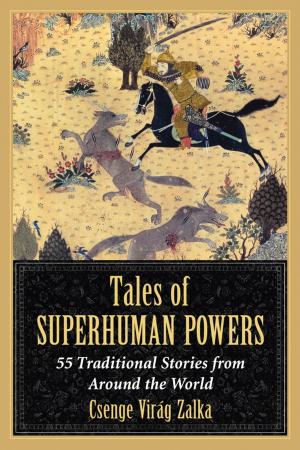| Author: | Sam Edwards | ISBN: | 9781465890009 |
| Publisher: | Conrad Communications LLC | Publication: | June 26, 2011 |
| Imprint: | Smashwords Edition | Language: | English |
| Author: | Sam Edwards |
| ISBN: | 9781465890009 |
| Publisher: | Conrad Communications LLC |
| Publication: | June 26, 2011 |
| Imprint: | Smashwords Edition |
| Language: | English |
Sam Edwards disappeared from New York after editing and publishing Second Coming magazine—the first of the slick-paper cultural and political magazines that published the works of I.B. Singer, Allen Ginsberg, Robert Frank, Robert Rauschenburg, Susan Sontag and many others—edited Arts magazine and published and edited the New York Free Press.
His play about capital investment in capital punishment, “The Great American Light War,” was published in the Drama Review, and produced in regional theaters around the country and off-Broadway in New York.
Sam had columns in the underground press as “Our Man on the Spot”—which caused the West Side News to lose all its advertising in one week—and “Our Man in the Big Apple,” under his by-line D. Melmoth, caused an attack on the office of the New York Review of Sex and Politics (also published by Sam) by anti-Castro Cubans.
Sam kept his night hours occupied by tending bar uptown, downtown, eastside and westside before fleeing the Big Apple in 1973 to homestead in Northern California.
After learning a bit of common sense from homesteading, Sam had the sense to begin looking again for news that doesn’t fit “at a prime time of your convenience,” and he started Eureka Video Magazine with consumer cameras. He made his first award-winning documentary about Reagan’s proxy wars, “Dinner in Managua.”
Eureka Productions has won awards for grass-roots productions (the digital revolution) on sustainable logging (“Why You Can’t Harvest Trees Like Carrots or Potatoes”), the Himalayas (“On the Pilgrimage Trail”), post-Taliban Afghanistan (“nam-e-shab”), gold medals for documentaries on micro-farming (“Invitation to Garden”), health, healing and knife-fighting (“The Best of Masters on the Mountain Healing”), modern India (“In the Footsteps of Gandhi”) and “hopefully more to come from collaborative efforts” (he said that).
Sam Edwards disappeared from New York after editing and publishing Second Coming magazine—the first of the slick-paper cultural and political magazines that published the works of I.B. Singer, Allen Ginsberg, Robert Frank, Robert Rauschenburg, Susan Sontag and many others—edited Arts magazine and published and edited the New York Free Press.
His play about capital investment in capital punishment, “The Great American Light War,” was published in the Drama Review, and produced in regional theaters around the country and off-Broadway in New York.
Sam had columns in the underground press as “Our Man on the Spot”—which caused the West Side News to lose all its advertising in one week—and “Our Man in the Big Apple,” under his by-line D. Melmoth, caused an attack on the office of the New York Review of Sex and Politics (also published by Sam) by anti-Castro Cubans.
Sam kept his night hours occupied by tending bar uptown, downtown, eastside and westside before fleeing the Big Apple in 1973 to homestead in Northern California.
After learning a bit of common sense from homesteading, Sam had the sense to begin looking again for news that doesn’t fit “at a prime time of your convenience,” and he started Eureka Video Magazine with consumer cameras. He made his first award-winning documentary about Reagan’s proxy wars, “Dinner in Managua.”
Eureka Productions has won awards for grass-roots productions (the digital revolution) on sustainable logging (“Why You Can’t Harvest Trees Like Carrots or Potatoes”), the Himalayas (“On the Pilgrimage Trail”), post-Taliban Afghanistan (“nam-e-shab”), gold medals for documentaries on micro-farming (“Invitation to Garden”), health, healing and knife-fighting (“The Best of Masters on the Mountain Healing”), modern India (“In the Footsteps of Gandhi”) and “hopefully more to come from collaborative efforts” (he said that).















